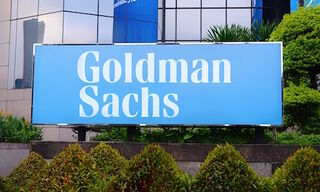Julius Baer M&A Case Revived After CEO Exit
Investment bankers are dusting off an old M&A scenario for Julius Baer as the bank licks its wounds following the departure of its star CEO. Will Chairman Daniel Sauter submit to the protective embrace of larger Swiss rival Credit Suisse?
Daniel Sauter is the least-known banking chairman in Switzerland: until now, Julius Baer’s energetic 43-year-old CEO Boris Collardi has done the heavy lifting, strategically as well as practically.
The 60-year-old Sauter (pictured below) intended to leave at the end of 2018, a source told finews.com, after almost seven years at the helm. A spokesman for Julius Baer denied the information, saying Sauter had no plans to step down.

Sauter’s career plans aside, his young CEO’s departure this week for the comfort of a Pictet partnership brings the lingering question for the chairman into full view: where is Julius Baer heading? Several investment bankers finews.asia spoke to think they have an idea.
Wallflower Turned Force
In his nearly ten-year run, Collardi (pictured below) and his mentor before him, Alex Widmer, took the bank from a wallflower existence into a Swiss banking export to rival UBS and Credit Suisse in Asia and a force in Latin America and the Middle East. Along the way, he hired and acquired copiously and buried several scandals including a $547 million U.S. tax investigation.

With 393 billion francs in assets, Julius Baer has critical mass, but Sauter's misfortune is that after Collardi’s departure, the stock lacks sizzle.
He departed just as the nitty-gritty begins: banks can no longer «buy» net new money, as Collardi had done, successfully, for years. As finews.asia reported, Julius Baer needs a credible plan to bolster growth without them, as well as cutting spending to protect profit margins.
Credit Suisse Tie-Up?
Long-standing speculation ties the bank to Credit Suisse, where Collardi and many Baer bankers started their careers. The two banks are of course fierce competitors for talented private bankers, clients and ultimately fresh assets.
The former Julius Baer CEO, who has almost doubled investors' stock gains during his tenure, has conceded that the bank makes an attractive target. He also said it wouldn’t happen – on his watch.
Would Julius Baer entertain another merger? The bank was quite recently speaking to both EFG International and Notenstein La Roche, finews.asia has reported previously (see stories here and here). Both sets of talks ultimately fizzled.
Tap Shareholders?
To be sure, Credit Suisse is miles bigger, but CEO Tidjane Thiam and his colleagues would be foolhardy not to be discussing it. At the beginning of his tenure, Thiam said he would like a piece of the Swiss consolidation play.
Why? Credit Suisse desperately needs to grow, and while Iqbal Khan’s private bankers have posted healthy inflows in recent quarters, Julius Baer’s assets would vault the bank up a league. In Asia, Thiam’s preferred growth market, Credit Suisse would be within striking distance of UBS with Julius Baer’s assets.
To be sure, a merger of the two is riddled with complexity: Julius Baer's rich valuation serves as a protective shield. Credit Suisse simply doesn’t have the 14 billion francs in cash or stock handy, and Thiam would have to tap shareholders for a third time. The jury is out on whether he has the credibility and support to – successfully – do so.
Ballsy Play vs Safe Harbor
Culture is another sticking point: Credit Suisse drew a painful lesson when it suffered massive client withdrawals after integrating Clariden Leu, a bank it had managed at arm's length for several years. Many of Julius Baer's influential private bankers are the same type as Clariden Leu: they never want to see the inside of a big bank again.
The logistics also aren’t simple: both Credit Suisse and Julius Baer are grappling with IT renewal problems which will cost hundreds of millions. Credit Suisse split up its private bank into the Khan-led international unit, an Asian business, and a Swiss one led by Thomas Gottstein.
Strategically, the case for Credit Suisse making a play for Julius Baer is obvious, several investment bankers say. Whether Thiam makes a ballsy move is of course uncertain. By contrast, Sauter presumably wouldn't be a hard sell to lead his vulnerable private bank into safe harbor.



























